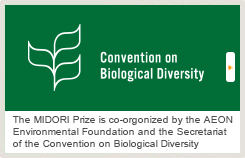
- Nakano, Shin-ichi (Shin-ichi Nakano, Japan)
-
Director and Professor, Center for Ecological Research, Kyoto University
Dr. Shin-ichi Nakano is the Director and a Professor of the Center for Ecological Research, Kyoto University, and a microbial ecologist in freshwater and marine environments. In 1994 July, he received PhD due to the dissertation work entitled “The role of bacterivorous flagellates in the phosphorus cycling in Lake Biwa”. Since April of 1994, he started his research career as a researcher at the Lake Biwa Research Institute, the Prefectural institute for conservation of Lake Biwa, the largest lake in Japan. He conducted several research projects on bloom forming mechanisms of cyanobacteria (Microcystis) in the lake. In 1996, he moved to the Faculty of Agriculture, Ehime University, and focused his research to protistan (protozoan) ecology in freshwater environments, especially in eutrophic lakes. After the establishment of Center for Marine Environmental Studies (CMES), Ehime University in 1999, he moved to CMES and conducted researches on planktonic food web dynamics in a nearby coastal marine system where pearl oyster culture was actively performed. In 2003, he came back to Faculty of Agriculture in the university and conducted researches on food web dynamics in lotic and lentic environments of freshwater and marine systems. In 2008, he moved to the Center for Ecological Research (CER), Kyoto University and so far, he has been devoting researches on food web dynamics, with special reference to bacterial, algal and protozoan ecology, in lakes, especially Lake Biwa. Since July of 2009, he has been serving as the leader of the project entitled “Ecophysiology, Phylogeography and Environmental Sociology on Water Blooms of the Globally Distributed Cyanobacterium Microcystis aeruginosa” sponsored by Ministry of Environment Japan (FY 2009-2011). He is the author of more than 100 publications predominated by English-written ones. In 2013, he was awarded the 17th Biwako Prize for Ecology.










